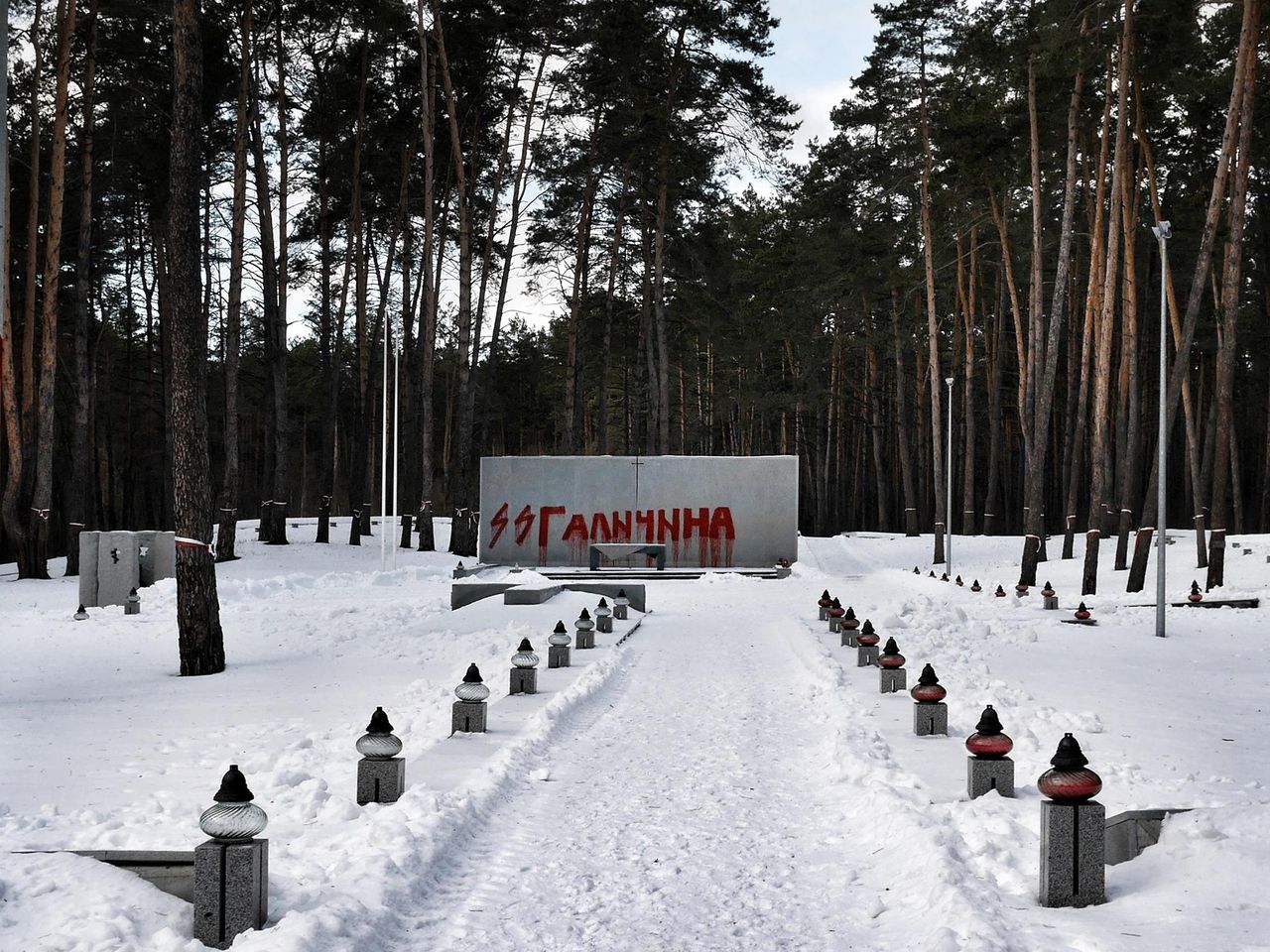
A war on history. The Ukrainian National Remembrance Institute responds
The Ukrainian National Remembrance Institute has announced a suspension of the legalization of Polish monuments in Ukraine. It is an answer to the dismantling of a memorial monument dedicated to the UPA soldiers at the cemetery in Hruszowice, poviat of Przemyśl, which happened on the previous day. According to the Ukrainian National Remembrance Institute, there are 105 illegal Polish monuments and memorial sites, established in Ukraine between the years of 1991 and 2017.
The harsh reaction of the Ukrainian National Remembrance Institute was influenced by the fact that the dismantling of the Hruszowice monument took place just before the commemoration events of the 70th anniversary of the “Operation Vistula” began.
’70 years ago, the Polish communist regime committed a horrible crime which now constitutes a part of history known under the name of the Vistula Operation. […] Unfortunately, the 70th anniversary of the tragedy is not marked by a gesture of reconciliation and historical dialogue, but it becomes yet another reason for destroying the traces of our nation’s presence in the south-east Poland’, the statement emphasized.
The fact that there was no reaction from the relevant Polish state authorities was also pointed out. In the issued statement, the Ukrainian National Remembrance Institute stresses that the ‘dismantling’ of the monument in Hruszowice was announced in the Polish media and the demolition itself was being reported by journalists which were present at the site of the events. The police did not intervene, and the ‘head of the commune responded positively to the crime which was committed’.
The Ukrainian side also pointed out that the removal of the monument in Hruszowice is already the 15th incident associated with the Ukrainian memorial sites since 2014. The monument in Hruszowice has been vandalised in August of 2014.
‘There are no investigations which are being conducted on these incidents. The Polish authorities are not undertaking repairs of the damaged monuments. At the same time, four acts of vandalism were committed in Ukraine in connection with the Polish memorial sites, and the Ukrainian authorities have undertaken repairs of the memorial sites every time, in the shortest possible time period, bringing them back to their original state, and there were criminal court cases established in relation to these acts of vandalism’, the Ukrainian National Remembrance Institute indicates.
Thus, the Institute has stopped the process of legalization of Polish memorial sites in Ukraine, taking into account the ‘lack of an appropriate reaction of the Polish authorities against the systematic destruction of the Ukrainian memorial sites in Poland’. In this way, 105 Polish monuments in Ukraine were granted illegal status.
However, that is not all. The Ukrainian National Remembrance Institute has also addressed the National Interministerial Committee on honouring the memory of anti-terrorist operations’ participants, victims of war and political repression about the suspension of issuing permits for conducting searches of Polish memorial sites in Ukraine. Requests were also made to local governments with an appeal of not agreeing to the establishment of new Polish monuments, as well as to the restoration of those which exist already.
In the issued statement, two questions were also directed towards the Polish authorities. Firstly, does the Polish state authorites’ lack of response to dismantling the Hruszowice monument represent the official position of the Polish state? Secondly, ‘does the position of the Stubno district’s head of the commune mean that the remainder of the Ukrainian monuments, which are recognized in Poland as illegal, are to be destroyed as well?’ The Institute is asking if, mirroring the events which happened in Poland, Ukraine is not to undertake any actions which would prevent the destruction of Polish monuments on its territory.
The Polish-Ukrainian relations are becoming the hostage of historical politics. On 22nd of July, 2016, the Polish government recognized the crimes committed by Ukrainian nationalists against the Polish population between the years of 1943 and 2017 in Volhynia and Eastern Galicia as genocide. This provoked the indignation of the Ukrainian side. However, the Kiev authorities did not answer in a symmetrical manner, oppositely to some of the Ukrainian politicians’ proposals.
Since the beginning of 2017, there have been several incidents aimed at Polish-Ukrainian relations in Ukraine. Firstly, some unknown perpetrators have destroyed a monument commemorating the Polish victims of Ukrainian nationalists in Huta Pieniacka. Then, a Polish-Ukrainian cemetery in Bykownia has been vandalised. The Polish Consulate in Lviv has been vandalised with the use of paint during the night between the 7th and 8th of February, and during the night between the 28th and 29th of March, some unknown perpetrators fired a grenade launcher at the Polish Consulate General in Lutsk. This occurrence has been qualified as a terrorist act by the Ukrainian Security Service. The search for the perpetrators behind these events has not ended with success yet; however, the appropriate investigation activities are being conducted.
In turn, the Polish authorities have decided that the state will not financially support the anniversary of the Vistula Operation in Poland. The central events, which will begin on 29 April in Przemyśl, are to be financed with collected funding.























